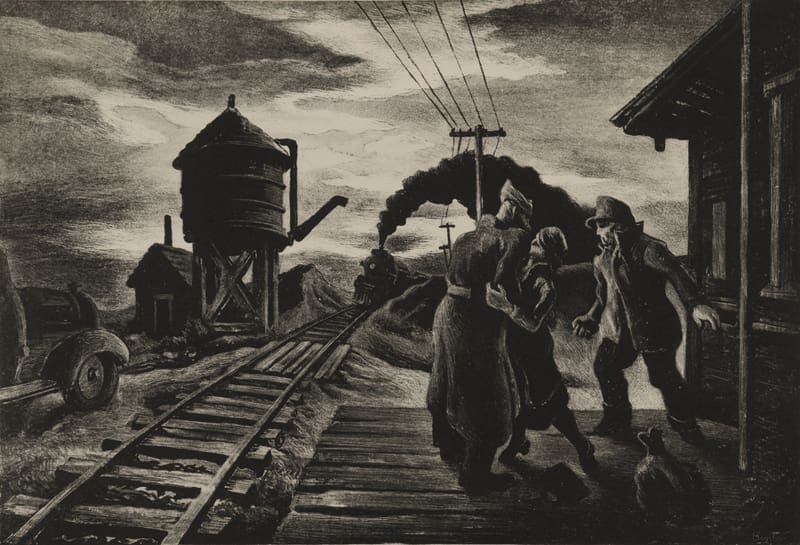
A tall man in a long coat and a flat cap embraces a woman on a station platform as a train approaches, billowing thick black smoke which frames the couple’s faces. A third figure, perhaps a station attendant, seems to hurry them along. This print’s alternative title, Soldier’s Farewell, confirms the gravity of the scene.
Thomas Hart Benton is known for colorful paintings, energetic prints, and expansive murals depicting historical events. As a prominent participant in the Regionalist movement, he portrayed scenes of rural America in a manner that appears visually stylized yet reflective of everyday reality. Rather than compose Morning Train from solid shapes, the artist created a dense array of thin, curving lines. Even in this melancholy and forboding scene, Benton’s style generates a pervasive sense of motion and liveliness that is common among his works.
Though Benton only shows three figures, do you sense that many other people had similar experiences during World War II? What about this print informs your answer? Which features of the picture help to subtly tell you more about these people and the time and place in which they live?
Asked in 1935 whether the future of American art would lie in the Midwest, Benton responded: “Yes. Because the Middle-West is, as a whole, the least provincial area in America. It is the least affected, that is, by ideas which are dependent on intellectual dogmas.” In the same interview, he went on to describe Midwestern artists as daring risk-takers, independent thinkers, clear communicators, and hard workers. Through his work and his words, Benton was indeed one of the Midwest’s greatest artistic champions. It is no coincidence that his soldier bids farewell not from a crowded dock on the east coast, but from an area of hills, plains, and sparse population—this is the side of American life that Benton found most compelling.

